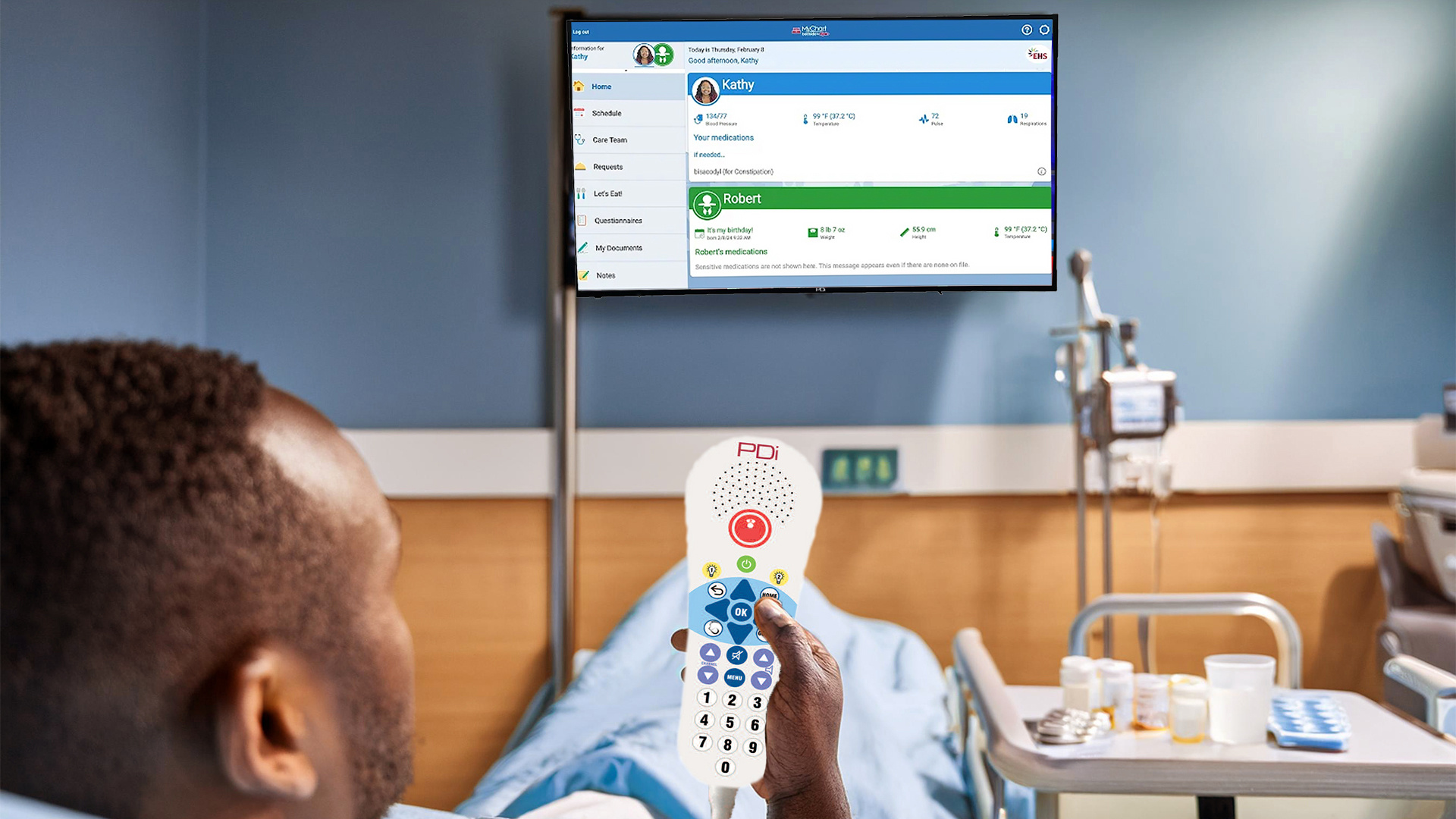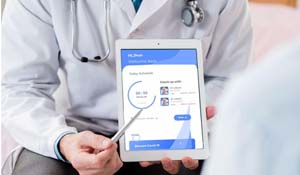Cloud-Managed Services to Improve Healthcare Efficiency
As the digital world booms, cloud-managed services have emerged as a powerful tool to streamline operations. Touting benefits such as reduced costs,...

In recent years, the healthcare industry has witnessed a significant shift towards digital solutions, with cloud-based Electronic Health Records (EHR) emerging as a game-changing technology. President Obama’s support for a national system of electronic health records (EHR) in his American Recovery and Reinvestment Act of 2009 spearheaded the movement toward digital health records.
As healthcare continues to evolve, the need for more efficient, secure, and scalable systems becomes increasingly apparent. Cloud-based EHRs offer a modern solution that enables healthcare providers to better manage patient data, streamline workflows, and ultimately improve patient outcomes.
Unlike traditional EHR systems stored on internal servers, cloud-based EHRs allow healthcare facilities to access patient records remotely, offering several key advantages. Let's explore five major benefits of adopting a cloud-based EHR system for your healthcare facility.
One of the most impactful benefits of cloud EHR systems is the improvement in patient outcomes. Cloud-based solutions enhance the quality and safety of care by ensuring that patient information is easily accessible and always up-to-date. According to a study released in 2023 by HIMSS, hospitals with intermediate EHR systems (implementing more than 10 functionalities identified by Adler-Milstein et al. (2014) and Jha et al. (2009).) saw an 8% decrease in 30-day readmission rates for pneumonia in 2023 compared to those without. This accessibility enables healthcare providers to track patient information over time, improving diagnosis accuracy and facilitating better discharge planning.
By providing healthcare providers with real-time data and actionable insights, cloud-based EHRs support proactive care and early intervention, potentially reducing readmission rates and improving overall patient outcomes. This aligns with the growing focus on personalized care and data-driven decision-making in healthcare.
Cloud-based EHRs play a crucial role in fostering patient engagement, a key factor in improving health outcomes. These systems often include clinical apps and patient portals. This allows patients to access their health information, communicate with providers, and actively participate in their care management.
Most recently, PDi Communication Systems, Inc. is the only provider of hospital TVs compatible with Epic® MyChart® Bedside. Epic delivers patient health information and entertainment directly to the patient TVs.
High utilization rates of patient portals indicate that patients are taking an active interest in their health and leveraging available resources to stay informed and engaged. Cloud-based EHRs can help healthcare providers implement strategies to enhance accessibility, usability, and awareness of these portals among patients.

Cloud-based EHR systems significantly improve overall efficiency by streamlining administrative tasks such as scheduling, documentation, and patient information sharing. The National Library of Medicine notes that cloud-based EHRs can search and explore, reducing errors and improving quality, structure, flexibility, and sharing ability. The intuitive design of cloud solutions reduces the time healthcare workers spend on manual processes, allowing them to dedicate more time to patient care.
With cloud-based systems, patient records are automatically updated in real-time, and providers can quickly sort, organize, and share data. This leads to more effective workflows, fewer administrative errors, and improved care coordination across departments. Additionally, many cloud-based EHRs incorporate decision-support mechanisms, helping to reduce medical errors and enhance the quality of care provided to patients.
While small, resource disadvantaged rural hospitals may not have the Electronic Health Records systems needed to leverage increased workflow efficiencies or improved patient engagement, they are often acquired by larger health networks or can partner with regional hospital networks to build greater efficiencies in staff and patient experience.
Data security is paramount in healthcare IT, and cloud-based EHR systems are designed with this in mind. Cloud providers typically employ advanced encryption methods, automatic security patches, and regular updates to ensure patient information is protected from breaches or unauthorized access. Moreover, cloud-based EHR vendors are responsible for maintaining HIPAA compliance, relieving healthcare facilities from the burden of managing complex security protocols on-site.
By handling critical security measures such as renewing encryption certificates and patching vulnerabilities, cloud-based EHRs allow healthcare facilities to focus on delivering quality patient care, confident in the knowledge that their data is secure.
Maintaining local servers and IT infrastructure can be a significant expense for healthcare facilities, especially when factoring in hardware upgrades, software updates, and data backups. Switching to cloud-based EHR can substantially reduce or even eliminate these costs. Cloud computing solutions scale effortlessly, allowing healthcare providers to add or remove users, storage, and functionalities as needed without significant investments in new infrastructure.
Furthermore, healthcare facilities no longer need to invest in costly redundancy protocols or backup procedures. Cloud providers ensure reliable access to data with built-in resiliency measures, reducing operational costs while maintaining service continuity.
The adoption of cloud-based EHR systems represents a significant step forward in healthcare IT. By leveraging cloud computing in healthcare, facilities can provide better patient outcomes, improve care coordination, and maintain the highest levels of data security—all while reducing the burden on internal IT resources.
As we look to the future, it's clear that cloud-based solutions will continue to play an increasingly important role in healthcare delivery. The flexibility, scalability, and innovative capabilities offered by cloud-based EHRs position them as a critical tool for healthcare facilities looking to stay at the forefront of patient care and operational efficiency. To learn more about ways PDi can help your hospital with cloud-based Smart TV technologies, contact us today.
While challenges and considerations remain, such as data migration and staff training, the benefits of cloud-based EHRs far outweigh the potential hurdles. As these systems continue to evolve and improve, they will undoubtedly shape the future of healthcare, enabling more personalized, efficient, and effective care delivery.

As the digital world booms, cloud-managed services have emerged as a powerful tool to streamline operations. Touting benefits such as reduced costs,...

A patient care coordinator works diligently to ensure patients receive the best possible care throughout their healthcare experience. Care...

Part 3 of "Different Angles of Patient Engagement" Blog Series Previously, we discussed the experience of a large-screen footwall patient TV and ...